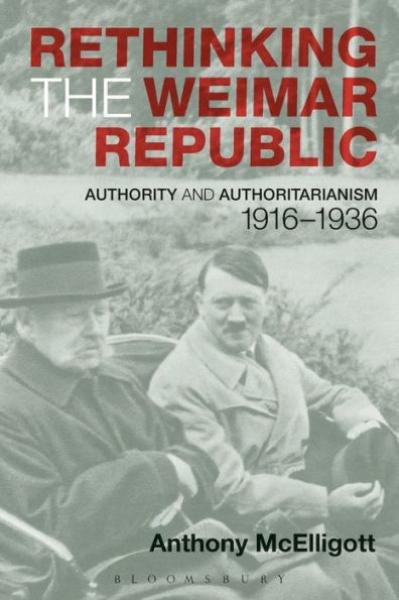Description
McElligott's impressive mastery of an enormous body of research guides him on a distinctive path through the dense thickets of Weimar historiography to a provocative new interpretation of the nature of authority in Germany's first democracy. Sir Ian Kershaw, Emeritus Professor of Modern History at the University of Sheffield, UK
This study challenges conventional approaches to the history of the Weimar Republic by stretching its chronological-political parameters from 1916 to 1936, arguing that neither 1918 nor 1933 constituted distinctive breaks in early 20th-century German history.
This book:
- Covers all of the key debates such as inheritance of the past, the nature of authority and culture
- Rethinks topics of traditional concern such as the economy, Article 48, the Nazi vote and political violence
- Discusses hitherto neglected areas, such as provincial life and politics, the role of law and Republican cultural politics
Anthony McElligott's new study challenges conventional approaches to the history of the Weimar Republic. Taking as its premise that neither 1918 nor 1933 constituted distinctive breaks in early twentieth-century German history, 'Rethinking the Weimar Republic' stretches the chronological-political parameters of the republic from 1916 to 1936.
Anthony McElligott is Professor of History at the University of Limerick, Ireland. His most recent books are Rethinking the Weimar Republic: Authority and Authoritarianism, 1916-1936 (Bloomsbury, 2014) and (editor with Jeffrey Herf) Antisemitism before and since the Holocaust. Altered Contexts and Recent Perspectives (2017). He was elected a fellow of the Royal Historical Society in 1999 and to the Royal Irish Academy in 2015.
"[A] thought-provoking new approach to the Weimar Republic ... [This] well-researched book provides a perceptive analysis of Weimar's struggle to maintain authority and of the Republic's relationship to both the German Empire and the Third Reich." - The Historian
"More than 80 years after its demise, the Weimar Republic continues to fascinate. McElligott's own edited collection has enriched understanding of the republic's political instability and cultural dynamism. The chapter titled Authority between Democracy and Dictatorship is perhaps the volume's most compelling contribution, as McElligott discusses the Weimar constitution's inadequacies (or rather, the perception of such by contemporaries) and the widespread appeal during periods of acute crisis (1923, 1930-33) of dictatorship as a remedy for the failures of Germany's parliamentary democracy. A must read for any scholar interested in the origins of the Nazi dictatorship. Summing Up: Essential. Graduate students, faculty." --K. C. O'Connor, Gonzaga University, CHOICE
Product Details
- Bloomsbury Academic Brand
- Feb 13, 2014 Pub Date:
- 0340731907 ISBN-10:
- 9780340731901 ISBN-13:
- 384 Pages
- 9.1 in * 6.1 in * 0.9 in Dimensions:
- 1 lb Weight:




